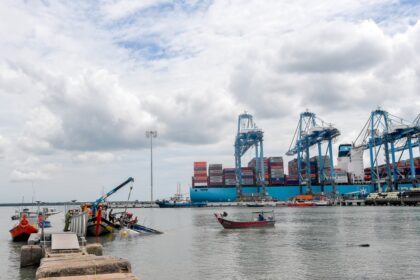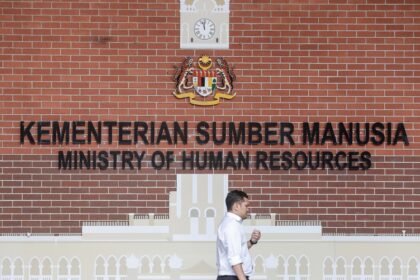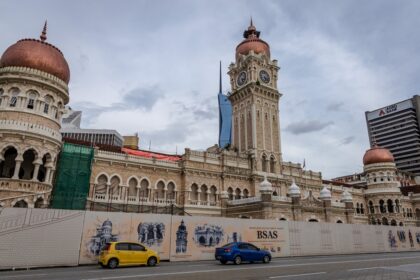KUALA LUMPUR, May 16 — Malaysia’s gross domestic product (GDP) grew 4.4 per cent in the first quarter of this year, Bank Negara Malaysia announced today, confirming initial estimates that cited resilient household spending, a strong job market, and continued export growth as key drivers.
Private consumption expanded by 5 per cent between January and March compared to the same period last year, although this was slightly lower than the 5.3 per cent growth recorded in the previous quarter.
“Household spending was sustained amid positive labour market conditions and income-related policy measures, including the upward revision of minimum wage and civil servant salary,” the bank said in a statement released today.
Private investments grew 9.2 per cent, underpinned by spending on structures, machinery and equipment but still weaker than the preceding quarter, which grew at over 12 per cent.
Public investments in the first quarter of this year outpaced private inflows, growing 11.6 per cent compared to 10 per cent the preceding quarter.
Exports, however, slowed to 19.6 per cent in the January to March period, a significant dip from the previous quarter’s 63.6 per cent. The bank said the drop was caused by lower mining exports.
The bank had said it would revised 2025’s growth forecast amid increased trade volatility fuelled by US President Donald Trump’s so-called Liberation Day tariffs.
BNM Governor Datuk Seri Abdul Rasheed Gharfour said the forecast would largely depend on the bilateral negotiations outcome between trade representatives from Malaysia and Washington, which is currently ongoing.
For now, the forecast would be slightly lower than the 4.5 to 5.5 per cent forecast range. A new estimate would be announced in the next month or two.
On the domestic side, the trade talks’ outcome could influence the labour market and spending attitude. Still, the bank expects household consumption to remain supportive of growth given Malaysia is “facing these challenges from a position of strength”.
Up to 68 per cent of Malaysian exports are affected by the reciprocal tariffs but close to half of are exempted, mostly electronics and electrical goods.
BNM expects slower spending and investment should the trade negotiations fail to yield positive results given 30 per cent of labour income and 20 per cent of employment are export-oriented sectors.
Headline inflation moderated to 1.5 per cent in the first quarter, down from 1.8 per cent from the preceding October-December period.
BNM said the moderation was largely due to lower utilities inflation at 3.0 per cent. It was 18.1 per cent in the previous quarter.
“This followed the dissipation of the effects of earlier water tariff adjustments and higher electricity charges for high-usage households in Q1 2024,” it added.
Source:  Malaysia’s GDP grows 4.4pc in Q1 on robust household spending and strong job market
Malaysia’s GDP grows 4.4pc in Q1 on robust household spending and strong job market

































